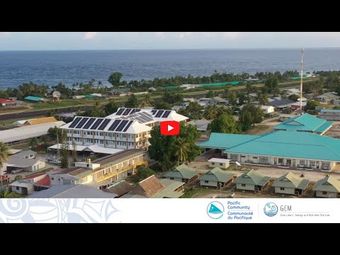Exploring the Integration of Traditional Knowledge in Disaster Risk Management and Climate Change Adaptation Policies and Practices: Guadalcanal of the Solomon Islands as a Case Study
- Description:
- Global and regional policy frameworks have increasingly emphasised the need for the integration of traditional knowledge in Disaster Risk Management (DRM) and Climate Change Adaptation (CCA). This is reflected in the Pacific Island Countries (PICs), where there have been increased efforts from both governments and Non-Government Organisations (NGOs) to incorporate traditional knowledge of local...
- Display date:
- 2022
- Location:
- Solomon Islands
- Format:
- Thesis
- Collections:
- Tuwhera
- Contributors:
- Le De, Loic
- Publisher:
- Auckland University of Technology
- Content partner:
- Auckland University of Technology
- Availability:
- Not specified
-
Copyright status: All rights reservedFind out more about what you are able to do with this itemThis item is all rights reserved, with means you'll have to get permission from Auckland University of Technology before using it. For more information, please see our use and reuse page.More informationAuckland University of Technology has this to say about the rights status of this item:
OpenAccess
What can I do with this item?Non-infringing useNZ copyright law does not prevent every use of a copyright work, and this item may be hosted by an international institute or organisation. You should consider what you can and cannot do with a copyright work.No sharingYou may not copy and/or share this item with others without further permission. This includes posting it on your blog, using it in a presentation, or any other public use.No modifyingYou are not allowed to adapt or remix this item into any other works.No commercial useYou may not use this item commercially.
Related items
Welcome and warm Pasifik greetings
The information on this site has been gathered from our content partners.
The names, terms, and labels that we present on the site may contain images or voices of deceased persons and may also reflect the bias, norms, and perspective of the period of time in which they were created. We accept that these may not be appropriate today.
If you have any concerns or questions about an item, please contact us.
